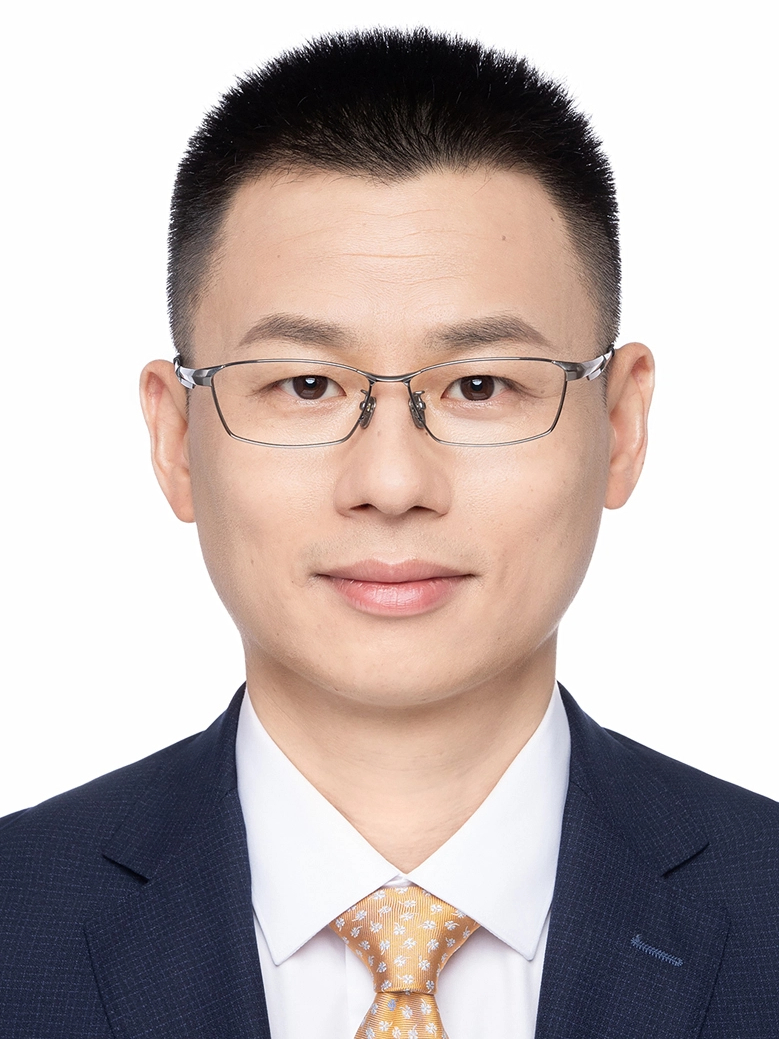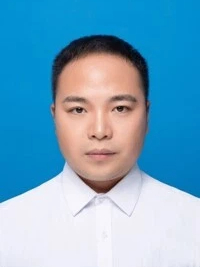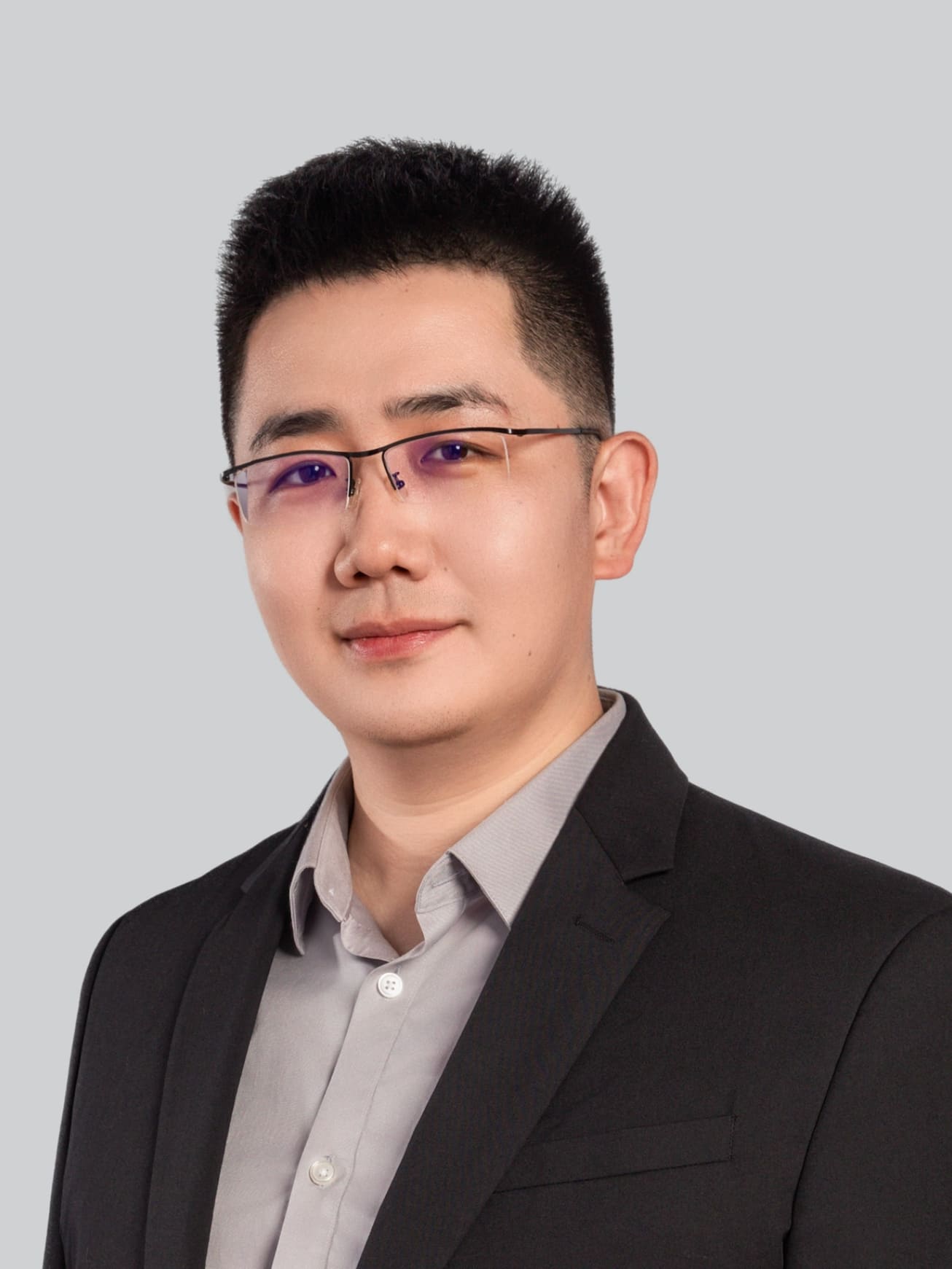Track Chairs
专题主席
 Prof. Qi Liu
Prof. Qi Liu
South China University of Technology, China
Qi Liu is currently a Professor with the School of Future Technology at South China University of Technology. Dr. Liu received a Ph.D degree in Electrical Engineering from City University of Hong Kong, Hong Kong, China, in 2019. During 2018 - 2019, he was a Visiting Scholar at the University of California Davis, CA, USA. From 2019 to 2022, he worked as a Research Fellow in the Department of Electrical and Computer Engineering, National University of Singapore, Singapore. His research interests mainly focus on multimodal perception, reconstruction, and generation, including target estimation, sparse perception, 3D scene reconstruction/rendering/generation/editing, music generation and editing, human-object interaction, etc. Dr. Liu has published over 50 papers in peer-reviewed journals and conferences, including IEEE TFS、TCYB、TCSVT、IoT-J、ICCV、ACL、CVPR、AAAI, etc., and has been an Associate Editor of the IEEE Systems Journal (2022-), and Digital Signal Processing (2022-). He was also Guest Editor for the IEEE Transactions on Consumer Electronics, IEEE Internet of Things Journal, IET Signal Processing, etc. He received the Best Paper Award from IEEE ICSIDP in 2019 and ICCBD+AI in 2024.
 Assoc. Prof. Haoxi Zhang
Assoc. Prof. Haoxi Zhang
Chengdu University of Information Technology, China
Prof. Haoxi Zhang is an Associate Professor at Chengdu University of Information Technology, China. He holds a Ph.D. in Knowledge Engineering from the University of Newcastle, Australia (2013), and a Master’s in Software Engineering from the University of Electronic Science and Technology of China. Prof. Zhang's research intricately melds artificial intelligence with healthcare, focusing on the development of advanced computational models and machine learning algorithms for biomedical data analysis, particularly medical imaging and AIoT for healthcare, to enhance medical decision-making. His work emphasizes developing multimodal learning algorithms to integrate multi-scale biomedical data for comprehensive disease management, constructing real-world learning systems for creating robust, trustworthy representations from imperfect medical data, and innovating causality-driven learning algorithms to boost interpretability and safety in healthcare applications. Prof. Zhang has published over 40 refereed papers in leading journals and conferences.
Track Chair of Track 2:
 Prof. Chen Cen
Prof. Chen Cen
South China University of Technology, China
Chen
Cen is a Professor and Ph.D. advisor at the
School of Future Technology, South China
University of Technology. He is a Senior Member
of IEEE, a recipient of the National Youth
Talent Program (Overseas), listed among the
Global Top 2% Scientists, selected as a Young
Top Talent in Guangzhou’s “Talent Convergence
Program,” and recognized as an AI3 Artificial
Intelligence Talent in Singapore.
His main research interests include
high-performance intelligent computing, parallel
and distributed computing, with a focus on AI
software-hardware co-design and architectural
design. He has published 45 papers as first
author or corresponding author, including 24 in
IEEE/ACM Transactions and CCF-A journals, and 10
in CCF-A conferences, and holds 16 authorized
patents.
He has led 11 projects, including both national
research grants and industry–academia
collaborations. Currently, he serves as an
editorial board member for the international
journals IEEE Transactions on Computers (a CCF-A
journal) and Alexandria Engineering Journal.
Track Chair of Track 3:
 Dr. Huihui Fang
(Research Scientist)
Dr. Huihui Fang
(Research Scientist)
Nanyang Technological University, Singapore
Dr. Huihui Fang received her B.S. and Ph.D. degrees from Beijing Institute of Technology, China, in 2015 and 2020, respectively. She is currently a research scientist at the Alibaba-NTU Global e-Sustainability CorpLab, Nanyang Technological University, Singapore. Dr. Fang has authored 29 papers in leading international journals and conferences, including Science Bulletin, IEEE Transactions on Medical Imaging, Medical Image Analysis, IEEE Transactions on Circuits and Systems for Video Technology, and MICCAI. She holds 13 Chinese patents, and has served as a co-editor for 2 proceedings books. She is a Guest Editor for 3 international journals. Dr. Fang led the drafting and publication of 2 AI technology application guidelines and contributed to the formulation of 3 group and international standards for AI technology applications. She has served as the Chair for the MICCAI OMIA workshop (2023-2025) and MICCAI Challenges (2021 GAMMA, 2022 GOALS, 2023 STAGE, 2024 STAGE2, 2025 GAVE). As an active reviewer, Dr. Fang has provided expertise for numerous international journals, including IEEE Transactions on Medical Imaging, IEEE Journal of Biomedical and Health Informatics, IEEE Transactions on Neural Networks and Learning Systems, Expert Systems with Applications, Artificial Intelligence in Medicine, Frontiers Series, etc. She has also reviewed for top-tier conferences such as ICML, MICCAI, ISBI, ICASSP, ICONIP, and PRCV.
Track Chair of Track 4:
 Prof. Yanwu Xu
Prof. Yanwu Xu
South China University of Technology, China
Dr.
Yanwu Xu is a Tenured Professor at South China
University of Technology, former Chief Scientist
of Baidu's Intelligent Healthcare division, and
a researcher at the Guangdong Laboratory of
Artificial Intelligence and Digital Economy
(Pazhou Laboratory). He serves as an expert on
the World Health Organization’s Digital Health
Advisory Board, an Adjunct Professor at the
Singapore Eye Research Institute, and a Senior
Member of IEEE. Additionally, he holds the
position of Vice Chair of the Digital Imaging
and Intelligent Healthcare Committee of the
China Medical Education Association, and is a
Standing Committee member of both the Digital
Medicine Branch of the China Computer Federation
(CCF) and the Intelligent Ophthalmology Branch
of the China Medical Education Association.
With over 160 publications in international
journals and conferences (including more than 30
papers in top-tier journals with impact factors
exceeding 10 and 4 highly cited papers), his
work has been cited more than 12,000 times on
Google Scholar, and he has an H-index of 50. Dr.
Xu was instrumental in securing China’s first
multi-disease AI Class III medical device
certificate (also the country’s first AI-based
glaucoma diagnosis Class III certificate). This
achievement was recognized as one of the “Top
Ten Advances in Chinese Ophthalmology in 2021”
and was shortlisted in the first “AI Medical
Device Innovation Task List” jointly organized
by the Ministry of Industry and Information
Technology and the National Medical Products
Administration in 2022.
He has been appointed as a Distinguished Expert
under the Ministry of Public Security’s Talent
Introduction Initiative, as well as a
Distinguished Expert of Zhejiang Province and
Beijing Municipality. For three consecutive
years, he has been named to the “World’s Top 2%
Scientists” list published by Stanford
University.
Track Chair of Track 5:
 Prof. Fan Yang
Prof. Fan Yang
Shandong University, China
Fan
Yang, Professor and Doctoral Supervisor at
Shandong University. He is a Taishan Scholar
Young Expert of Shandong Province, Vice
President of the National Institute of Health
and Medical Big Data, and Executive Deputy
Director of the Shandong Provincial Engineering
Research Center for Digital Intelligence and
Active Health. He serves as a review expert for
the Ministry of Science and Technology’s HJ
Talent Program, an evaluation expert for talent
positions in the biopharmaceutical industry
under the Ministry of Industry and Information
Technology, and a Distinguished Professor at
Chongqing University of Posts and
Telecommunications and Shandong Normal
University. He is also a Senior Member of the
China Computer Federation (CCF).
Yang holds editorial positions including
Associate Editor of Biomedical Informatics and
Progress in Computer and Autonomous Intelligent
Research, Editorial Board Member of Health
Information Science and Systems and Gene
Expression, Standing Committee Member of the CCF
Digital Medicine Subcommittee, Standing
Committee Member of the CCF Data Governance
Development Committee, and Chair-elect of the
Health Big Data and Digital Intelligence Public
Health Subcommittee of the Shandong Preventive
Medicine Association.
He has received a written commendation from the
Ministry of Science and Technology for his
contributions to the “COVID-19 Science and
Technology Response Efforts” and the Second
Prize of the Ministry of Education’s Engineering
Technology Award.
His primary research areas include trustworthy
deep learning driven by causal inference and
cancer informatics. He has presided over 10
national and provincial/ministerial-level
projects, including key projects/sub-projects
under the National Key R&D Program, a future
industry innovation task unveiled by the
Ministry of Industry and Information Technology,
the National Natural Science Foundation of China
General Program, open funds of key laboratories
of the Ministry of Education and Shandong
Province, and research programs of Shandong
provincial universities. Additionally, he has
participated as a key contributor in 5 projects,
including those funded by the U.S. NSF and NIH,
Shandong Major Innovation Projects, and Shandong
Key R&D Programs.
He has published more than 30 SCI/EI papers,
obtained 25 authorized/accepted national
invention patents with 2 technology transfers,
12 software copyrights, and contributed to 2
industry or group standards.
Track Chair of Track 6:
 Assoc. Prof. Jinpeng Li
Assoc. Prof. Jinpeng Li
South China University of Technology, China
Jinpeng Li is an Associate Professor and PhD advisor at the School of Automation, South China University of Technology, an IEEE Senior Member, and a MICS Committee Member. His main research interests focus on artificial intelligence and its applications in medicine, particularly developing methods in multi-modal learning, self-supervised learning, weakly-supervised learning, and transfer learning for generalizable, interpretable, and trustworthy medical image analysis and electronic health record analysis systems. He obtained his PhD from the National Key Laboratory of Pattern Recognition, Institute of Automation, Chinese Academy of Sciences. Over the past five years, he has led 6 national and provincial-level government-funded projects. He has published over 60 papers in international journals and conferences, including TPAMI, TNNLS, TCYB, ACL, EMNLP, and MICCAI. Among them, two of his first-author papers are ESI Highly Cited Papers, and three of his first-author papers have received over 300 citations each. He serves as a reviewer for the National Natural Science Foundation of China and for journals such as TPAMI. His research projects, which include a large-scale multimodal medical data analysis system and motion function rehabilitation equipment based on brain-computer interfaces, have won several awards in provincial and municipal innovation competitions.